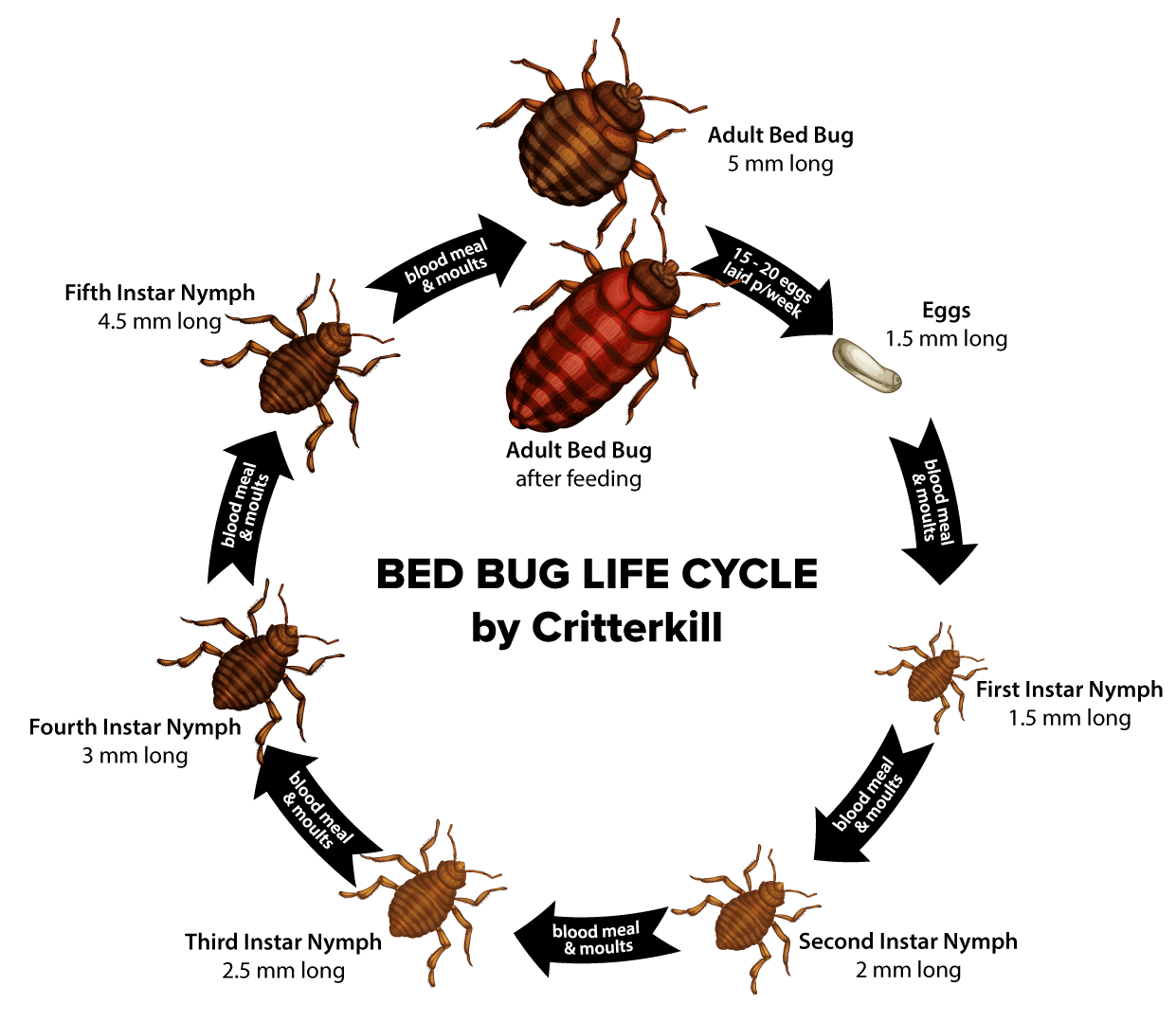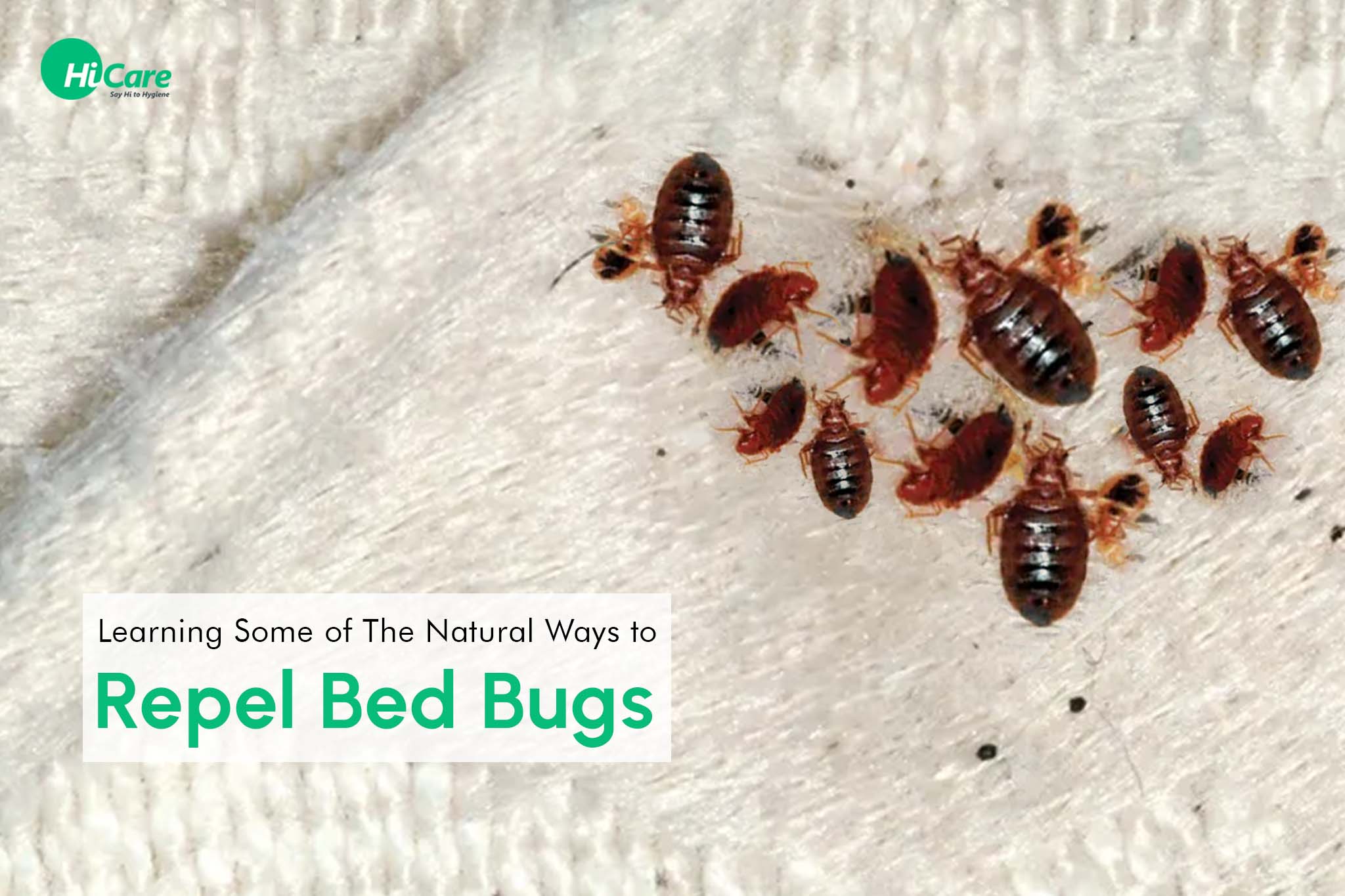To repel bed bugs, use a mattress encasement and vacuum regularly. Additionally, declutter your home and wash bedding frequently.
Avoid bringing used furniture into your home, and seal cracks and crevices. These steps will help to keep your home bed bug-free. Dealing with bed bugs can be a frustrating and inconvenient experience. These resilient pests can quickly infest your home and cause discomfort for you and your family.
However, there are effective ways to repel bed bugs and prevent infestations. By following a few simple tips and using the right products, you can protect your home and keep these annoying insects at bay. We’ll explore the most effective methods for repelling bed bugs and creating a safe and comfortable living environment. Whether you’re dealing with a current infestation or looking to prevent future problems, these strategies will help you take control of your home and protect your family from these persistent pests.
:max_bytes(150000):strip_icc()/Bed-bug-control-tips-and-tricks-2656377-e580f433c55a4a98826e429753062084.jpg)
Credit: www.thespruce.com
Prevention Methods
Prevention is key when it comes to repelling bed bugs from infesting your home. By implementing various proactive measures, you can significantly reduce the risk of a bed bug infestation. Here are some effective prevention methods to keep these pesky pests at bay:
Regular Cleaning Practices
Keeping your home clean is essential in preventing bed bug infestations. Regular vacuuming, dusting, and laundering your linens in hot water can help eliminate any potential bed bugs and their eggs. Maintaining a clutter-free environment also reduces hiding spots for these pests.
Sealing Cracks And Openings
Inspect and seal any cracks or openings in walls, baseboards, and furniture to prevent bed bugs from gaining entry into your home. Using caulk and sealant to close off these entry points is an effective way to limit their access.
Use Of Bed Bug Mattress Encasements
Investing in bed bug-proof mattress encasements can provide an additional barrier against these pests. These encasements act as a protective cover for your mattress, preventing bed bugs from infesting and multiplying within the fabric.
Natural Repellents
When it comes to repelling bed bugs, natural repellents can be an effective solution to keep these pests at bay. Natural repellents are safer for use in homes and are often gentler on the skin compared to chemical sprays. Here are some natural repellents that can help in repelling bed bugs:
Lavender Oil
Lavender oil is known for its pleasant fragrance and its ability to repel bed bugs. This essential oil can be applied to bedding, clothing, and other fabrics to create a deterrent for bed bugs. The strong scent of lavender acts as a natural repellent, making it less likely for bed bugs to infest these areas.
Tea Tree Oil
Tea tree oil is a powerful natural repellent due to its strong antimicrobial properties. Its strong scent and anti-bed bug properties make it an effective repellent. Dabbing a few drops of tea tree oil on mattresses, bedding, and other potential hiding places of bed bugs can help deter them from infesting these areas.
Diatomaceous Earth
Diatomaceous earth is a natural, chalky substance that can effectively repel bed bugs. When bed bugs come into contact with diatomaceous earth, it damages their exoskeleton and dehydrates them, ultimately leading to their demise. This natural repellent is safe to use around the home and can be sprinkled around areas where bed bugs are likely to hide, such as under the bed, along baseboards, and in cracks and crevices.
Chemical Solutions
Chemical Solutions: When dealing with a bed bug infestation, using chemical solutions can be effective.
Insecticides
Insecticides are chemical substances specifically designed to kill bed bugs on contact.
- Choose an insecticide registered for use against bed bugs.
- Follow the instructions on the label carefully for maximum effectiveness.
- Apply the insecticide to areas where bed bugs are present, such as cracks and crevices.
Professional Extermination Services
Professional extermination services can provide a more comprehensive treatment using specialized chemicals.
- Professional exterminators have access to stronger chemicals not available to consumers.
- They can inspect your home thoroughly to identify all bed bug hiding places.
- A professional treatment may require vacating the premises for a few hours for safety.

Credit: www.terminix.com
Home Remedies
When it comes to dealing with bed bugs, there are several effective home remedies that can help you repel these pesky insects. These remedies are often more affordable and convenient than professional extermination methods. By utilizing simple techniques such as vacuuming, steam cleaning, and freezing, you can effectively eliminate and prevent bed bug infestations in your home.
Vacuuming
Vacuuming is a simple and efficient way to eliminate bed bugs from your home. When vacuuming, it’s important to pay special attention to areas where bed bugs may hide, such as mattresses, box springs, bed frames, and furniture. Use the crevice tool attachment on your vacuum cleaner to reach into cracks and crevices where bed bugs may be hiding.
Steam Cleaning
Steam cleaning is another effective method for getting rid of bed bugs. The high temperature of the steam kills not only adult bed bugs but also their eggs and larvae. When using a steam cleaner, ensure that the steam is hot enough to effectively eliminate bed bugs. Direct the steam into crevices, seams, and other hiding places to ensure that all bed bugs are eradicated.
Freezing
Freezing is a natural and chemical-free method to kill bed bugs. Place infested items, such as clothing, bedding, and pillows, inside sealed plastic bags and put them in the freezer at 0°F (-18°C) or lower for at least four days. The extreme cold temperatures will eliminate the bed bugs and prevent their further spread.
Remember, these home remedies are most effective when used in combination with other bed bug control methods, such as decluttering and regularly washing and drying bedding on high heat. By incorporating these remedies into your pest control routine, you can effectively repel bed bugs and maintain a bug-free home.
Travel Tips
Discover effective travel tips for repelling bed bugs during your trips. Learn practical methods for preventing infestations and protecting yourself from these pesky insects. Keep your travels stress-free and enjoyable by following these essential bed bug avoidance strategies.
Inspecting Hotel Rooms
When staying at a hotel, it’s important to inspect the room thoroughly to protect yourself from bed bugs. Start by pulling back the sheets and inspecting the mattress seams, paying close attention to any dark spots or tiny bloodstains which may indicate the presence of bed bugs. Also, don’t forget to check the headboard, bed frame, and any upholstered furniture in the room. Look for live bugs, shed skin, or tiny white eggs which are often found in the crevices and seams of furniture. These signs indicate an infestation, and it’s best to ask for a different room or change hotels altogether.
Keeping Luggage Off The Floor
To prevent bed bugs from infesting your luggage, it’s essential to keep it off the floor and away from the bed. Use a luggage rack or a hard surface, like a table, to store your suitcase during your stay. Bed bugs can easily climb onto your luggage and hitch a ride back home with you if it’s left on the floor or bed. Additionally, consider using a bed bug-proof suitcase cover or plastic bags to further protect your belongings.

Credit: critterkill.co.uk
Dealing With Infestations
Check mattresses, furniture, and cracks for bugs.
Look for reddish-brown spots on bedding.
Call pest control for severe infestations.
Eliminate bugs effectively with professional treatment.
Frequently Asked Questions For How To Repel Bed Bugs
How Do You Repel Bed Bugs Naturally?
To repel bed bugs naturally, you can use essential oils like lavender, tea tree, or peppermint. Dilute these oils with water and spray them on your mattress, bedding, and furniture. Vacuum your home regularly and wash your bedding frequently in hot water to get rid of bed bugs and their eggs.
What Smells Do Bed Bugs Hate?
Bed bugs hate the smell of certain essential oils, such as lavender, tea tree, eucalyptus, and peppermint. These scents act as natural repellents and can help keep bed bugs away from your home. You can use essential oil sprays or add a few drops to your laundry detergent when washing bedding.
Can Bed Bugs Live In Clothes?
Yes, bed bugs can live in clothes. They can easily hitch a ride on your clothing and infest your home. It’s important to regularly wash and dry your clothes using high heat to kill any bed bugs or eggs. If you suspect a bed bug infestation, it’s best to seal infested clothing in a plastic bag and wash them immediately.
How Do You Prevent Bed Bugs When Traveling?
To prevent bed bugs when traveling, inspect your hotel room for signs of bed bugs, such as dark spots on the mattress or furniture. Avoid placing your luggage on the bed or floor and use luggage stands instead. Keep your clothes in sealable plastic bags and wash them in hot water when you return home.
Is There a Difference in Repelling Bed Bugs from Skin vs. Other Surfaces?
When it comes to repelling bed bugs from skin versus other surfaces, the approach may differ. Topical applications like insect repellents can effectively repel bed bugs from skin, whereas diatomaceous earth or encasements may work better on surfaces. Understanding the distinction can help in preventing bed bug infestations.
Conclusion
In protecting your home from bed bugs, vigilance and prevention are key for peace of mind. By implementing these tips, you can create a bed bug-free environment. Regular cleaning, sealing cracks, and using natural repellents can help keep these pests at bay.
Remember, early action is the best defense.
{ “@context”: “https://schema.org”, “@type”: “FAQPage”, “mainEntity”: [ { “@type”: “Question”, “name”: “How do you repel bed bugs naturally?”, “acceptedAnswer”: { “@type”: “Answer”, “text”: “To repel bed bugs naturally, you can use essential oils like lavender, tea tree, or peppermint. Dilute these oils with water and spray them on your mattress, bedding, and furniture. Vacuum your home regularly and wash your bedding frequently in hot water to get rid of bed bugs and their eggs.” } } , { “@type”: “Question”, “name”: “What smells do bed bugs hate?”, “acceptedAnswer”: { “@type”: “Answer”, “text”: “Bed bugs hate the smell of certain essential oils, such as lavender, tea tree, eucalyptus, and peppermint. These scents act as natural repellents and can help keep bed bugs away from your home. You can use essential oil sprays or add a few drops to your laundry detergent when washing bedding.” } } , { “@type”: “Question”, “name”: “Can bed bugs live in clothes?”, “acceptedAnswer”: { “@type”: “Answer”, “text”: “Yes, bed bugs can live in clothes. They can easily hitch a ride on your clothing and infest your home. It’s important to regularly wash and dry your clothes using high heat to kill any bed bugs or eggs. If you suspect a bed bug infestation, it’s best to seal infested clothing in a plastic bag and wash them immediately.” } } , { “@type”: “Question”, “name”: “How do you prevent bed bugs when traveling?”, “acceptedAnswer”: { “@type”: “Answer”, “text”: “To prevent bed bugs when traveling, inspect your hotel room for signs of bed bugs, such as dark spots on the mattress or furniture. Avoid placing your luggage on the bed or floor and use luggage stands instead. Keep your clothes in sealable plastic bags and wash them in hot water when you return home.” } } ] }Related posts:

I’m MD Tanvir, and I bring years of expertise gained from working closely with pest control companies to the forefront. My journey in the industry has inspired me to launch Bug Battler, a platform aimed at equipping people with the know-how to combat pests autonomously. Through Bug Battler, I aim to empower individuals with practical insights to tackle pest infestations effectively.

